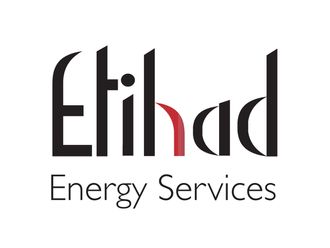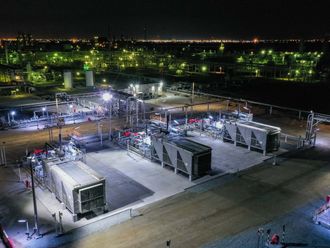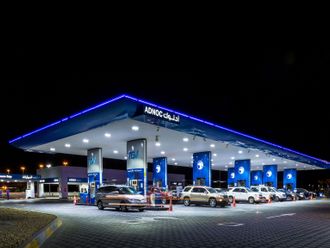Abu Dhabi: Brazil oilfield strike talk, coupled with the Nigerian rebel cease-fire expiration, pushed crude markets higher and took back the week's price declines.
The price of the Nymex's West Texas Intermediate benchmark touched an all-time high on Friday of $147.27/bbl before falling back to close at $145.08/bbl. Crude delivery for 2010 also gained, closing at $143.34/bbl. Last year crude sold for $73.94/bbl, up from $72.82/bbl 53 weeks ago.
Gloomy news from some of the New York Stock Exchange's largest financial service companies, resulting in further sell-offs in financials and a concomitant gain in non-equities. Even oil company stocks - refiners and integrateds - fell in active trading. Oil markets soaked up the liquidity that financials and technical markets leaked.
Again this week we heard official and editorial grumbling about the extent to which speculation has added to crude's current price, grumbling from those who should know better: Any buyer becomes a seller if the price increases enough.
Speculation is essentially an effect - not a cause - of sustained crude price increases. Fund managers are charged to make a profit with their capital; and they must go where the profits are. For now, that means trading commodities, including oil.
The bullish fundamentals for oil gained further confirmation last week as tanker rates for East Asia routes remained uncharacteristically strong for this time of year.
Calendar swaps for Asian-headed clean and dirty cargos showed no sign of weakening, even when values were weighted with the expected retirement of single hulled vessels. We are witnessing an historical wealth transfer from consumers to producers not seen since the 1950s.
Oman's heavy-sour benchmark DME contract also gained this week, closing at $133.50 (OSP). In after-hours trading on Thursday it reached $137.50/bbl. But on Friday it opened at $137.35 and closed trading at $140.35/bbl.
All the back months are higher and strongly contango to the nearby delivery months, again pointing to expected demand increases from Asia, the destination for most of Gulf crude. November '08 closed at $141.25/bbl in light trading, and July '09 stood at $143.13/bbl.
The Nymex natural gas nearby benchmark contract closed the week at $11.94/mmbtu, down from $13.66/mmbtu at the end of last week, mostly on seasonally expected weakness in demand in the North American market.
Gazprom attempt to purchase Libya's entire oil and gas output would further limit Europe's natural gas supply sources from three to just two: Russia and Norway. Presently, Russia supplies 25 per cent of Europe's needs. If Libyan gas is also captured by Russia expect gas prices in Europe to increase significantly.
The writer is an associate professor of Economics and Petroleum Market Research at the Petroleum Institute, Abu Dhabi.












